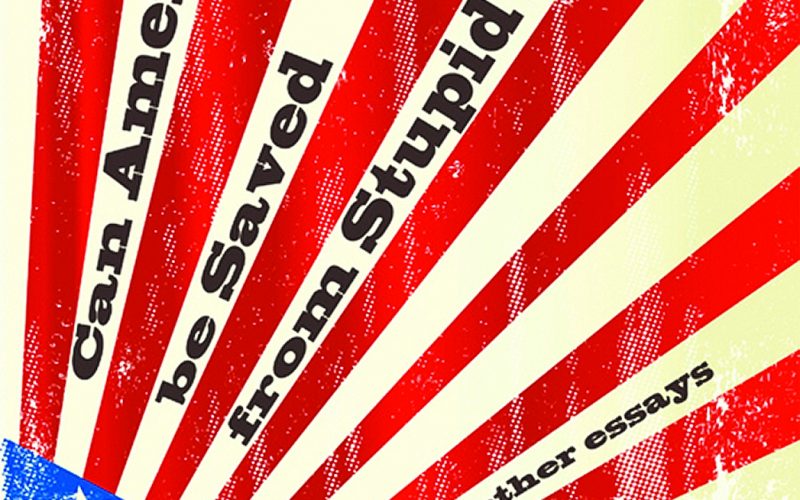By Chad Pollock
“Can America Be Saved from Stupid People” is a collection of Dave Duffy’s opinion columns for Backwoods Home Magazine, a publication he founded in 1989. The magazine is like Mother Earth News for libertarians and is a strong advocate of pragmatic ideas for how to live a self-sustaining life. I admire this about Duffy and the magazine, and I agree self-reliance is a key characteristic of American society.
Yet, “we the people” includes more than those who can afford to live off the grid, and if we are to encourage more people to live self-reliantly then we could begin by creating a system of government that puts the interests of all her citizens above the interests of the wealthy, corporate few.
According to Duffy, I am one of the stupid people America needs saving from. In the title essay of Duffy’s book, he skirts a direct definition of who is a “stupid person” and instead offers a historical summary that goes like this: “Humanity labored in a subsistence economy until the dawn of the Enlightenment in the 17th and 18th century; from the Age of Enlightenment came the notion that humans could pursue earthly happiness through the application of science to their lives; the United States was founded by a group of Enlightenment thinkers who enshrined the pursuit of happiness in the founding documents, particularly the Constitution; the 19th and 20th century then became the proving ground of two methods of implementing the Enlightenment’s ideal of the pursuit of happiness, viz. Socialist Communism v. Free-market Capitalism; Communism failed, Capitalism won.”
In other words, stupid people are the greedy, lazy citizens who vote for the socialist politicians who promise us goodies.
Duffy ignores other ep isodes in the “great struggle that produced America.” Was the Civil War worth the expansion of Federal power to proclaim all people free? Was the labor movement a pernicious infiltration of communism into our pure capitalism or a victory against the abuse of corporations? Did women fight for the right to vote only because they wanted goodies? Was the civil rights movement a struggle for more goodies or for a broader application of the pursuit of happiness?
isodes in the “great struggle that produced America.” Was the Civil War worth the expansion of Federal power to proclaim all people free? Was the labor movement a pernicious infiltration of communism into our pure capitalism or a victory against the abuse of corporations? Did women fight for the right to vote only because they wanted goodies? Was the civil rights movement a struggle for more goodies or for a broader application of the pursuit of happiness?
These are major episodes in the history of America, and there are other victories along the way: the Equal Protection Act, the Fair Labor Standards Act, sunshine laws, Brown v. Board of Education, the establishment of the EPA and the National Parks system, the recognition (if not the legislative follow-through) that health care is a human necessity.
Duffy does not mention these things, and implies throughout his essays that those who embrace this other history are the ‘stupid.’
In Duffy’s America, government, supported by all the stupid people who vote only for goodies, is subverting our freedom and marching toward socialist fascism.
I share some of Duffy’s concerns: the expansion of surveillance under the Patriot Act, the erosion of the right to privacy, the failed war on drugs, the endless War on Terror, the inefficiency of bureaucracy. Many of Duffy’s essays rightly criticize the dangers of Statism. Yet, the big government boogeyman Duffy presents ignores the biggest danger to a free society: corporatism. Since the creation of the modern corporation and America’s Gilded Age, our struggle as a country has been how to limit the destruction wrought by a soulless greedy “person” who has no morality except profit.
It is not the greed of the average American that is corrupting American capitalism. It is greed on a massive scale, the concentration of wealth in the hands of a few who encourage and demand that we live in ever-increasing reliance on the products they sell, whether that be dirty energy, nutrient-bankrupt foods, or high-tech devices made by underpaid laborers.
I appreciate Duffy’s perspective, and I would fight for his right to be heard. His essays are provocative, clearly written and deserve a read. But he rests his arguments on fuzzy history and false stereotypes, even as he proclaims his opinions are based on fact. If I accept Duffy’s version of fact, I can join him in enlightenment, but I think I’d rather be stupid.




